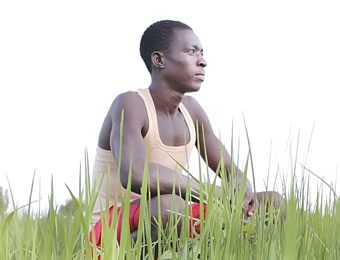FARMING is substantial to all man to avoid famine as the deity of the throat accepts no atonement but food. When a nation is free of famine, it is expected to be less poor. That is the proposition of our people.
Farming is the panacea for famine. But when the sons and daughters of farmers are famished, something must be wrong somewhere or someone must be wrong somehow.
Sokoto, the seat of the Caliphate is one of the states in Nigeria that solely or basically relies on farming for generating revenue. Sokoto is one of the states that produce crops like groundnut, potato, kola nuts, millet, sorghum, maize, tomatoes, onions, cotton and so on, in large quantities.
Rearing of animals and fishing are also not left out of the farming activities of the Sokoto people, all to avoid famine. However, despite the fact that Sokoto people farm abundantly, famine is the friend of many in the state.
So many farmers labour like elephants but eat like ants. The children of the fishermen hardly eat with fish on their meals. White bean which is one of the major agricultural produce in Sokoto is now gold, rivalling the price of rice in the market. There is famine in Sokoto, despite the farming of the people.
The “Almanjiris” who are the beggars that beg other beggars are dominating honourable citizens of the state. Young minds practice begging proudly as the profession of their passion and as the vocation of their vision.
Despite the fact that Sokoto people agriculturally struggle not to trouble, trouble troubles them with famine and poverty. If not the poorest, Sokoto was reported to have been one of the poorest states in our poor country, Nigeria. Why? The reasons are not far-fetched.
Rainfall is a blessed season for farmers. Agricultural activities in Sokoto state also depend on rainfall, since most of their farming activities are mainly rain-fed. But then, it hardly rains in Sokoto and whenever it rains, it is always disastrous as though the sky will cry.
Fact finders reported that Sokoto is faced with horrible desertification. This has resulted in the loss of arable land and also instigated the outmigration of farmers from Sokoto to more fertile areas, proliferating conflicts and incidence of migratory pests’ attacks.
This desertification and its related farming conundrums have led to Sokoto farmers’ vulnerability to climate change.
Only God knows whether the heaven even bothers about the weather of Sokoto. The abnormality of the climate in other places is the normality in the seat of the Caliphate. Everything is always excessive. The hotness of the Sokoto sun can burn the white man into ashes. The flammeous sunniness is simply a metaphor of the hellfire. This also results in the desertification of the land and thus, deactivating the agricultural activities in Sokoto state.
While the government of the state claimed to have invested millions upon billions on the agricultural sector of the state, the farmers lamented bitterly that the governor and the government have not done enough, when it comes to the provision of facilities that make palpable the farming works.
Moreover, Sokoto is generally believed to be one of the states that produce millet in large quantity. In spite this, grain marketers still paradoxically have to look outside Sokoto to buy more millet because of the high demand of the millet in the state.
Farmers, however, protested that they could not satisfy the high demand of millet because of the shortage of fertiliser, lack of support from the government and so on. It was gathered that fertiliser, ordinarily, should have been made available to genuine farmers but some perilous politicians in the state sell the fertiliser at exorbitant prices to the poor farmers.
Another reason why there is famine upon the farming in the state has to do with the economic manners of farmers. Most farmers in the seat of the Caliphate are not economical agriculturally. When they are well-fed today, they don’t care about tomorrow, they believe tomorrow will take care of itself, forgetting that a good Saturday is usually foretold on a good Friday.
A friend told me recently about a Sokoto farmer, who would clamour sorrowfully that the Government wasn’t good enough to them (farmers). But then, when the Government gave him a loan as a farmer, he began to wayward like someone who had been enthralled by his folk curse.
He went ahead to marry the fourth wife, spent extravagantly and in the long run, he ended up selling off his farm and began to beg. Indolence, insolence, tepid thoughts, attitudes of I-don’t-care are factors that further falter farming in Sokoto state. Of course, he who lacks work-ability will not lack poverty.
All these agricultural conundra can become something of the past if the solution is proffered to them. While the state Government has much work to do, the farmers have most work to do to ensure famine does not pluck the eyes of the people.
On the first side, it is the responsibility of the Government to provide agricultural accoutrements to ensure the palpability of agricultural activities in the state. With a sincere monitoring, it is also advisable that the government gives loan to serious farmers to empower them in their agricultural productivity. This will also ensure the workability of the farmers here and there.
On the other hand, the farmers also need to master the economics of agriculture. They need to doctor the agricultural management. Unless they stop living like the tortoise who doesn’t want work but want wealth, agricultural productivity won’t stop being impotent in Sokoto State.
Ibrahim Adeyemi is a student of English and a campus reporter from Usmanu Danfodiyo University, Sokoto.






